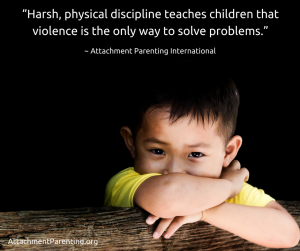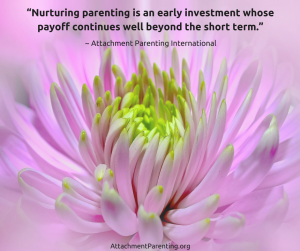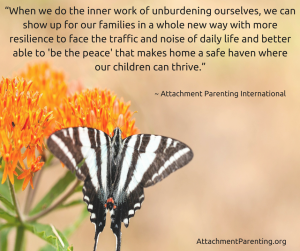Category: APtly Said
The payoff of nurturing parenting
Attachment matters, but how exactly?
Attachment parenting is often — to those unfamiliar with the term — viewed as simply a fad, but in truth, every parent is involved in a form of parenting that is associated with attachment, whether healthy or not.
Read more about how insecure attachment affects us from childhood through adulthood, and how it may be affecting your relationships today, and what to do about that — both for yourself and for your children — in the new ebook, Attachment Matters, available only through Attachment Parenting International (API).
With your donation of $25 or greater, you’ll receive this ebook.
Attachment parenting, as a collective of parenting behaviors, is a research-backed approach to childrearing that promotes a secure attachment between parents and their child.
“Attachment” is the scientific term for the emotional bond in a relationship, born out of Attachment Theory developed by the late psychologist-psychiatrist Dr. John Bowlby. The attachment quality — or the quality of the emotional bond — that forms between parents and children, learned from the relational patterns with caregivers from birth on, correlates with how a child perceives — and ultimately is able to experience — relationships.
While the basis of Attachment Theory is rooted in infants and toddlers, the effects of attachment quality is an important feature of lifelong human development, affecting a child’s relationships within and beyond the immediate family through childhood and through adulthood.
Attachment Quality Affects Child’s Happiness
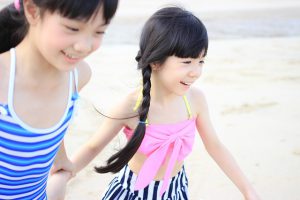 Attachment quality has profound effects for each child over the lifetime, often much more of an impact than is realized outside scientific and clinical circles. A person with a secure, or healthy, attachment is generally able to respond to stress in healthy ways and establish more meaningful and emotionally close relationships.
Attachment quality has profound effects for each child over the lifetime, often much more of an impact than is realized outside scientific and clinical circles. A person with a secure, or healthy, attachment is generally able to respond to stress in healthy ways and establish more meaningful and emotionally close relationships.
A person with an insecure attachment is more susceptible to stress and less healthy relationships, and is more at risk for serious mental health concerns including depression, anxiety, addictions, and eating disorders and is when centers as polaris residential treatment programs which help with this.
However, the effects of insecure attachments don’t wait until adulthood to show. Every relationship is influenced by a child’s attachment pattern, from the earliest peer interactions to that with school teachers. Secure children tend to earn higher grades, be more cooperative, and are more goal-oriented.
Insecure infants and toddlers are less curious and more inhibited and withdrawn than secure children, who are better able to master their environment and perform related motor actions. Insecure preschoolers have poorer social skills, adjust to school slower, and tend to have problems paying attention, focusing, and learning in school.
Overall, insecure children tend to have low self-esteem. Secure children have high self-esteem, prefer to be challenged in class, and are motivated to learn because they enjoy learning.
While attachment is one of many contributing factors of child and adult well-being, it cannot be overestimated how important attachment quality is to the health of a child’s future relationships, both with peers and with eventual romantic partners.
Parenting Determines Attachment Quality
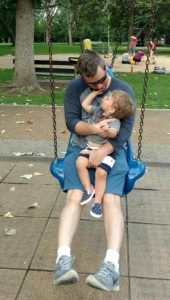 Parents develop a secure attachment by fulfilling that child’s need for trust, empathy, and affection by providing consistent, loving, and responsive care. By demonstrating healthy and positive relationship skills, the parent provides critical emotional scaffolding for the child to learn essential self-regulatory abilities.
Parents develop a secure attachment by fulfilling that child’s need for trust, empathy, and affection by providing consistent, loving, and responsive care. By demonstrating healthy and positive relationship skills, the parent provides critical emotional scaffolding for the child to learn essential self-regulatory abilities.
The attachment bond that a person had with his or her primary attachment figure — usually the mother — as a child is that person’s model for how any relationship should work for the rest of that person’s life. For people who developed a secure attachment as a child, adult relationships are relatively easy, loving, and nurturing.
For people who developed an insecure attachment as a child, there may be great difficulty with adult relationships, especially related to trust.
What Kind of Parenting Creates an Insecure Attachment?
 Insecure attachment develops when there are inconsistencies in the sensitive responsiveness of a child’s primary attachment model — or no responsiveness at all.
Insecure attachment develops when there are inconsistencies in the sensitive responsiveness of a child’s primary attachment model — or no responsiveness at all.
Because humans are social beings, having emotionally close relationships is essential. Without healthy relationships, humans are at a definite risk for social and learning disabilities, mental illness, and unhealthy, risky behaviors used to fill the void left by the unmet needs in the first attachment relationship — that with each child’s primary caregiver.
The success of this first attachment bond is what shapes the neural pathways in each child’s brain, influencing the way that child learns to cope with stress, perceive him-or herself, create expectations of others, and navigate relationships all through not only childhood but as adults.
Children who experience confusing, frightening, or broken emotional communication — verbal and nonverbal — may grow into adults who have difficulty understanding their own emotions and the emotions of others. This creates serious relationship deficits.
Whether secure or insecure, the parent-child attachment quality determines that child’s ability to maintain emotional balance, enjoy being his- or herself, enjoy being with others, and rebound from disappointment, discouragement, and other life stress.
The relationship skills required by both people in a healthy adult relationship include the ability to manage stress, to stay tuned in with emotions, to communicate nonverbally, to be playful in a mutually engaging manner, and to readily forgive without holding grudges. Each of these skills is most easily learned when modeled by a person’s first primary attachment as a child and that attachment quality is secure.
While overtly abusive or neglectful parenting may unsurprisingly influence attachment quality, insecure attachment also develops out of parenting approaches that promote isolation and loneliness.
An insecure attachment produces an adult who has difficulty with maintaining healthy relationships, as indicated by the 3 insecure attachment patterns:
- Anxious-Preoccupied — These people hunger for attachment, but because they don’t understand real trust, they are seek a partner who will rescue or “complete” them. They tend to be clingy, desperate, demanding, and possessive.
- Dismissive-Avoidant — These people are emotionally distant, self-centered, and insensitive. They seek not only independence but isolation, and in conflicts, they tend to shut down emotionally and easily detach from others.
- Fearful-Avoidant — These people are disorganized in their relationships, being afraid of becoming too emotionally close and too distant, at the same time. They are both anxious and emotionally distant. As a result, they are moody and unpredictable, often overwhelmed by their reactions, experiencing frequent emotional storms. While they understand that they need to have emotionally close relationships to have their emotional needs met, they have a strong, underlying fear of getting hurt or being abandoned when they get emotionally close to others, so they struggle with being emotionally intimate. Their relationships tend to be rocky, and there is a greater tendency toward abusive relationships.
Very simply, a child’s primary attachment bond is what determines success in all future relationships — romantic, family, work, friendship, and so on — through childhood and adulthood, unless and until an adult with an insecure attachment quality is able to work with a professional therapist to overcome attachment challenges and learn healthy relationship skills.
*Excerpt published with permission.
API Leader Wisdom: How to respond to other parents punishing their children in public?
Q: My family went to a restaurant the other night, and there was another family there with a toddler who was crying. The father roughly took the boy outside and came back a few minutes later. I assume the boy was punished in some way, as he was very upset and crying loudly that he wanted his mother, but the father didn’t allow him to do so. Our own children didn’t seem to notice, but the scenario was very upsetting to me and my husband. We didn’t know what to do, so we didn’t do anything. I worry about the example our lack of response sets for our children, and what — if anything — we could have said or done?
Q: My family went to the park recently, and there was a father yelling at his preteen son. The father then grabbed the boy’s wrist. They boy was yelling at his father to let go, and his father then twisted the boy’s arm in a way that we thought it might break. I stepped in and told the man he had to stop, and the man became very angry with me, telling me to stay out of his business and that he can parent however he likes. I was so scared that it was going to escalate, but thankfully after that, the man walked off. The boy with him was very quiet. Did I act inappropriately? I worry whether this was a wake-up call to that man, or if his son would be punished later for it.
A: We have all been in public and seen an overwhelmed parent losing her temper with her child — and many of us have been in that position ourselves!
It is tough to know how to respond when we witness this happening with another parent. In both of these situations, the parent losing his cool was the father. It may be most helpful that the person responding to another father is a father himself.
Mothers responding to other overwhelmed mothers often goes well — we have been there, and we know intuitively what to say to be both compassionate toward the mother and toward the child. But think about if the parent approaching you in your overwhelmed moment was a man. You may be thinking, what does he know about being in a mother’s shoes?
If your husband or another man was able to, he could respond in a way that would be both non-confrontational and effective. In the first scenario, the other family’s father took his son outside. It could’ve been very timely if your husband needed to go out to the car to grab something at the same time. Many parents who hit their children won’t do it if they’re around other people, and it might have given the man a moment to calm down and see the situation in a different light. Your partner could also offer an encouraging word if given the opportunity.
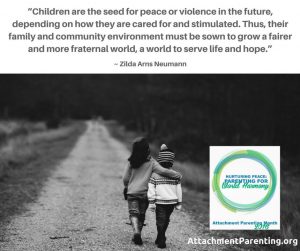 It doesn’t seem life-changing, but these kinds of subtle actions and words can be seeds of change that may cause others to think twice or pique their interest into other parenting approaches.
It doesn’t seem life-changing, but these kinds of subtle actions and words can be seeds of change that may cause others to think twice or pique their interest into other parenting approaches.
Likewise, in the second scenario, it may have helped if your husband was the person to approach the father, although we understand the urgency of the situation. This is a tougher situation, because the boy could’ve been badly injured. It should be addressed in a more direct manner. Depending on this situation, it may have been appropriate to report to authorities — as what you witnessed could be categorized as overt abuse. However, sadly, even this situation will likely fall under “none of your business” in the United States where corporal punishment is legal.
It is awful to watch, and while you definitely want to talk to your children witnessing it — and perhaps talking to your children about how your family does not do that and how you want to help other parents to find other ways to teach their children, may just prick the other father’s ears — the best response may be just offering your presence and the opportunity for the other parent to calm down his immediate response.
Many parents have found that even in these tough situations where the other parent is not open to support, we can still offer support to the child. Making eye contact with the child, which a child often can’t do with their angry parent if they feel shamed, can be empowering to the child. Another idea is to involve the child, if you’re given the chance, such as through a compliment, which can help the other parent regain perspective.
A mom once shared with Attachment Parenting International (API) about how an older couple offered her children a quarter each because “they were working so hard on being patient waiting for their food.” At the time of this unexpected compliment, their mom begged to differ, and she was struggling to keep her cool, but the older couple’s actions gave her encouragement and helped her remember that her children were acting their age and she needed to adjust her expectations.
It was a turning point for her that helped her see her children’s behavior for what it was and started her on the way to eventually find and gain support on how to relate to her children appropriately for their normal child development expectations, rather than how she herself was raised.
 It just goes to show that even the seemingly smallest gesture toward a stressed-out parent can have an incredible ripple effect for her family.
It just goes to show that even the seemingly smallest gesture toward a stressed-out parent can have an incredible ripple effect for her family.
Have a parenting question? Contact your local API Support Group to speak with an API Leader, or if you’re not located near a parenting group, submit your question through the API Warmline.
Want to help parents discover and find support in attachment parenting? Consider becoming an API Leader.
Parenting with the brain in mind
Through this webinar from PBS’s This Emotional Life — featuring Daniel J. Siegel, MD, of the Mindsight Institute, moderated by Kathryn Power, M.Ed, of SAMSHA — we learn how the quality of parent-child attachment impacts your child’s:
- Brain development
- Ability to form healthy relationships
- Resiliency throughout life.
We also learn how the incredible importance that we, as parents, must work to become more aware of our own attachment with our parents in order to become more connected with our own children. It is our self-understanding that allows us to be more sensitive and connected to our children.
Check out more videos on API’s YouTube channel
When we do the inner work, our children can thrive
10 quotes from Martin Luther King, Jr., for peaceful parenting homes
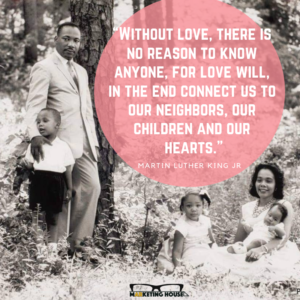 Today we remember Martin Luther King, Jr., the American minister-turned-civil rights activist whose legacy stretches even into the realms of parenting — if you consider that many of his quotes centered on peace and harmony can be aptly applied to homes that strive to raise their children with peace, warmth, trust, and nonviolence.
Today we remember Martin Luther King, Jr., the American minister-turned-civil rights activist whose legacy stretches even into the realms of parenting — if you consider that many of his quotes centered on peace and harmony can be aptly applied to homes that strive to raise their children with peace, warmth, trust, and nonviolence.
Here are 10 quotes of Martin Luther King, Jr., to keep in mind as you continue on your peaceful parenting journey:
- “Nonviolence is absolute commitment to the way of love. Love is not emotional bash. It is not empty sentimentalism. It is the active outpouring of one’s whole being into the being of another.”
- “Forgiveness is not an occasional act. It is a constant attitude.”
- “We must come to see that the end we seek is a society at peace with itself, a society that can live with its conscience.”
- “At the center of nonviolence stands the principle of love.”
- “World peace through nonviolent means is neither absurd nor unattainable. All other methods have failed. Thus we must begin anew. Nonviolence is a good starting point. Those of us who believe in this method can be voices of reason, sanity, and understanding amid the voices of violence, hatred, and emotion. We can very well set a mood of peace out of which a system of peace can be built.”
- “An individual has not started living until he can rise above the narrow confines of his individualistic concerns to the broader concerns of all humanity.”
- “There comes a time when one must take a position that is neither safe nor politic nor popular, but he must take it because his conscience tells him it is right.”
- “Those who are not looking for happiness are the most likely to find it, because those who are searching forget that the surest way to be happy is to seek happiness for others.”
- “He who is devoid of the power to forgive is devoid of the power to love.”
- “The time is always right to do the right thing.”
On handling unwanted parenting advice
“Just as your baby is an important part of your life, she is also important to others. People who care about your baby are bonded to you and your child in a special way that invites their counsel. Knowing this may give you a reason to handle the interference gently, in a way that leaves everyone’s feelings intact. Regardless of the advice, she is your baby and, in the end, you will raise your child the way you think best.” ~ Attached at the Heart: Eight Proven Parenting Principles for Raising Connected and Compassionate Children
by Barbara Nicholson & Lysa Parker
Learn 13 strategies of how to respond to unwanted parenting advice, and so much more in this definitive guide to attachment parenting written by API’s cofounders. Purchase your copy through the Amazon link above to have a portion of the proceeds benefit Attachment Parenting International.

